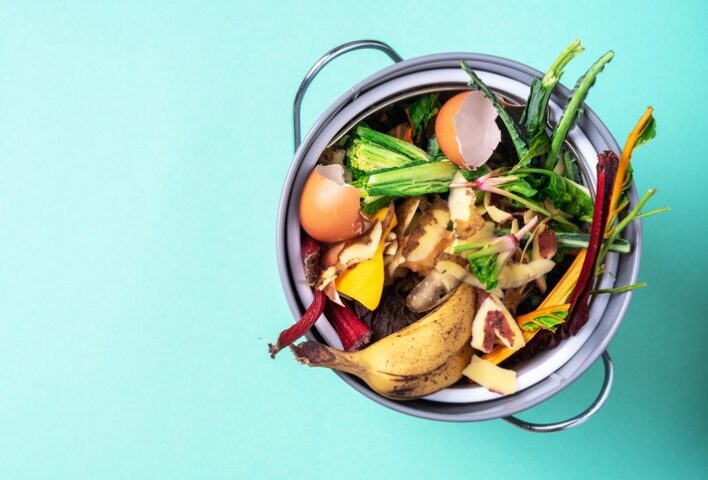Waste not! Our tips to cut down on food waste

If you are as passionate about eating a vegetarian diet as you are about reducing your environmental impact, check out these top tips!
Choosing more vegetarian and vegan food more of the time is the easiest
way to reduce your carbon footprint, but how can you make an even
bigger difference? A simple but significant step you can take is to cut down
on food waste. Adopting mindful consumption habits not only benefits the
planet but also helps you save money while you savour your meals!
1. Plan Your Meals
Work out your weekly meals in advance and create a shopping list based on your
plan – and check what you already have in the fridge, freezer, and cupboards.
This way, you’ll avoid unnecessary and duplicate buys, and by purchasing only what you need, you’ll minimise the chances of food going unused.
2. Love Your Leftovers:
Don’t overlook leftovers. Transform them into creative new dishes or freeze them for future meals. For example, a leftover stir-fry can become a tasty wrap for lunch the next day. Turn forgotten vegetables into a speedy mid-week dinner of bubble and squeak topped with a poached egg.

3. Composting:
Create a composting system for your kitchen scraps and non-edible food waste.
Composting enriches the soil and reduces landfill waste.
4. Master Portion Control:
Serve yourself smaller portions and go for seconds if still hungry. It’s better to go back for a little more than waste excess food left on your plate.
5. First In, First Out:
When restocking your fridge and cupboards, place newer items at the back and older ones in the front, to help use items with earlier expiration dates first. Regularly check for those that are close to expiration and prioritise using them. Labelling loose food items with purchase or expiration dates can also help you keep track of what needs to be consumed sooner.

6. Get Creative – use the whole of the ingredient:
Vegetable peels, stems, and tops can be turned into nutritious vegetable broths. Root vegetable (carrot, parsnips, beetroot) peelings can be crisped in the oven with a bit of seasoning, for tasty snacks. Broccoli stalks make delicious pesto, as do carrot greens (which can also be used as a parsley substitute).
7. DIY Smoothie Packs:
When your fruits are about to go bad, cut them up and freeze them for future homemade smoothies. Pre-packaged frozen fruits are not only costly but also contribute to plastic waste.

Help reduce food waste but also create a positive impact on the environment. Start small, and over time, these habits will become second nature, benefiting your plate, your palate, and the planet!
For more tips and information about what’s being done to tackle food waste in the UK, you can read this insightful article ‘Let’s talk food waste’, which first featured in our Spring 2023 magazine.
